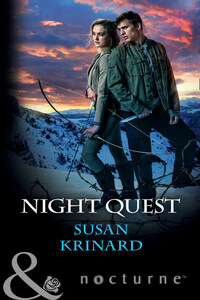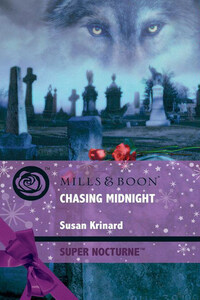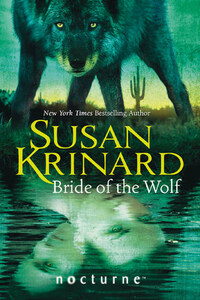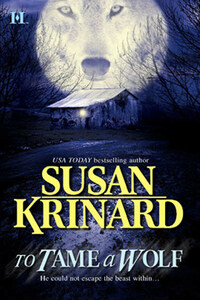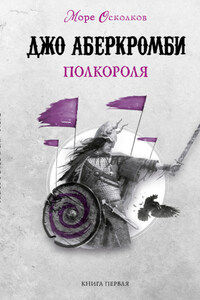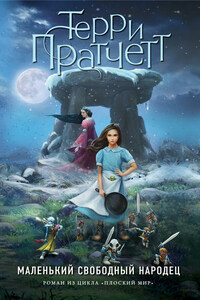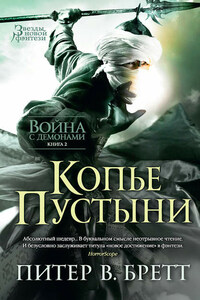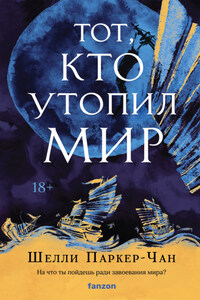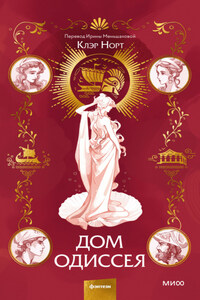âAre you certain?â she asked softly.
âLook at me, Artemis.â
Whatever she saw in Garretâs eyes apparently frightened her, and she almost bolted. But he grabbed her hand, and she settled down again, panting and trembling. Her teeth penetrated his flesh. She moaned as his blood began to flow, and he felt desire take hold exactly as he had prayed it wouldnât. He reached out to clasp his hands around her waist. He found the hem of her tunic and slipped his fingers beneath, sliding his palms over the skin below her ribs.
Then he paused, because she hadnât asked for his touch, because he knew that she was not Roxana. But Artemis gripped his wrist and held his hand where it was.
She was too far gone to stop. And so was he.
SUSAN KRINARD has been writing paranormal romance for nearly twenty years. With Daysider, she began a series of vampire paranormal romances, the Nightsiders series, for Mills & Boon Nocturne. Sue lives in Albuquerque, New Mexico, with her husband, Serge, her dogs, Freya, Nahla and Cagney, and her cats, Agatha and Rocky. She loves her garden, nature, painting and chocolate ⦠not necessarily in that order.
Prologue
Some thirty years after the signing of the Treaty between human and Nightsider, or Opiri, forces, human Enclaves and Nightsider Citadels maintained a sometimes uneasy peace. Territories were well established, and the neutral Zones between were regularly patrolled by Citadel and Enclave agents.
The agents were of two specific genetic types. The half-breed Daysiders, or Darketans, day-walking Opiri, were born of human fathers and Nightsider mothers. Previously considered mutants, they had human coloring and extra-human speed and strength, but possessed the standard need for blood.
The half-blood dhampires, offspring of human mothers and Opir fathers, were of a different genetic type, with âcat-likeâ eyes and the ability to walk in daylight, while also possessing full Opiri speed, strength and acute senses. A percentage were dependent on blood, while some were able to digest human food.
Though both Daysider and dhampir agents were charged to prevent potential enemies from entering their respective territories, they could not prevent the establishment of illicit colonies.
In California, humans and progressive Opiri founded mixed settlements in which humans and Nightsiders could live in peace and cooperation. These new colonies were for the most part left alone by both Citadels and Enclaves. Farther north, in the former states of Oregon and Washington, humans established heavily guarded compounds inhabited by militias more devoted to killing stray Opiri than maintaining the peace.
Their victims were primarily exiled Opiri known as Freebloods. Most Freebloods were humans who had been bitten and turned into Opiri by powerful Bloodlords and Bloodmasters after the beginning of the ten-year War, first serving as vassals to their sires and then, after being replaced by other vassals, released from the bond created by the process of conversion.
Freebloods within the Citadels were forced to compete for human serfs in order to establish a Household and gain rank. But though, by treaty, the Citadels were compelled to send convicts to their former enemies, the supply of such convicts began to dwindle, and competition for the serfs became a significant problem.
As a result, hundreds of Freebloods were exiled from the Citadels to survive in any way they could. These Freebloods, running in packs, became a significant threat to human and mixed colonies, often stealing humans or killing Opiri colonists.
At the same time, certain Citadels began to see the necessity of changing the Opir way of life in order to deal with the ever-shrinking supply of accessible human blood. Some Opiri spoke of the need to abandon the taking of human blood in favor of animal blood, while others favored a new war. Meanwhile, the mixed colonies continued to grow and spread, offering a new alternative of peaceful coexistence based on the voluntary sharing of blood.
It was, of course, inevitable that these competing philosophies would come into conflict.
âfrom the Introduction to The Armistice Years: Conflict and Convergence
Chapter 1
Timon.
Garret Fox knelt beside the footprints scattered in the dirt, tracing the smallest with his fingertip. They had paused here, the kidnappers, and the little person to whom the footprint belonged had briefly touched ground before being swept up again.
Still alive, Garret thought. He dragged his hand across his face, scraping against the four-day beard he hadnât had time to shave off, and got to his feet. Fear for his son made him ignore the deep ache in his muscles, the rawness of blistered feet, the heavy autumn rains that penetrated his coat and pried icy fingers under his collar. He hardly noticed the sting of the scratches across his face and hands where branches from trees and bushes had scraped his skin.
